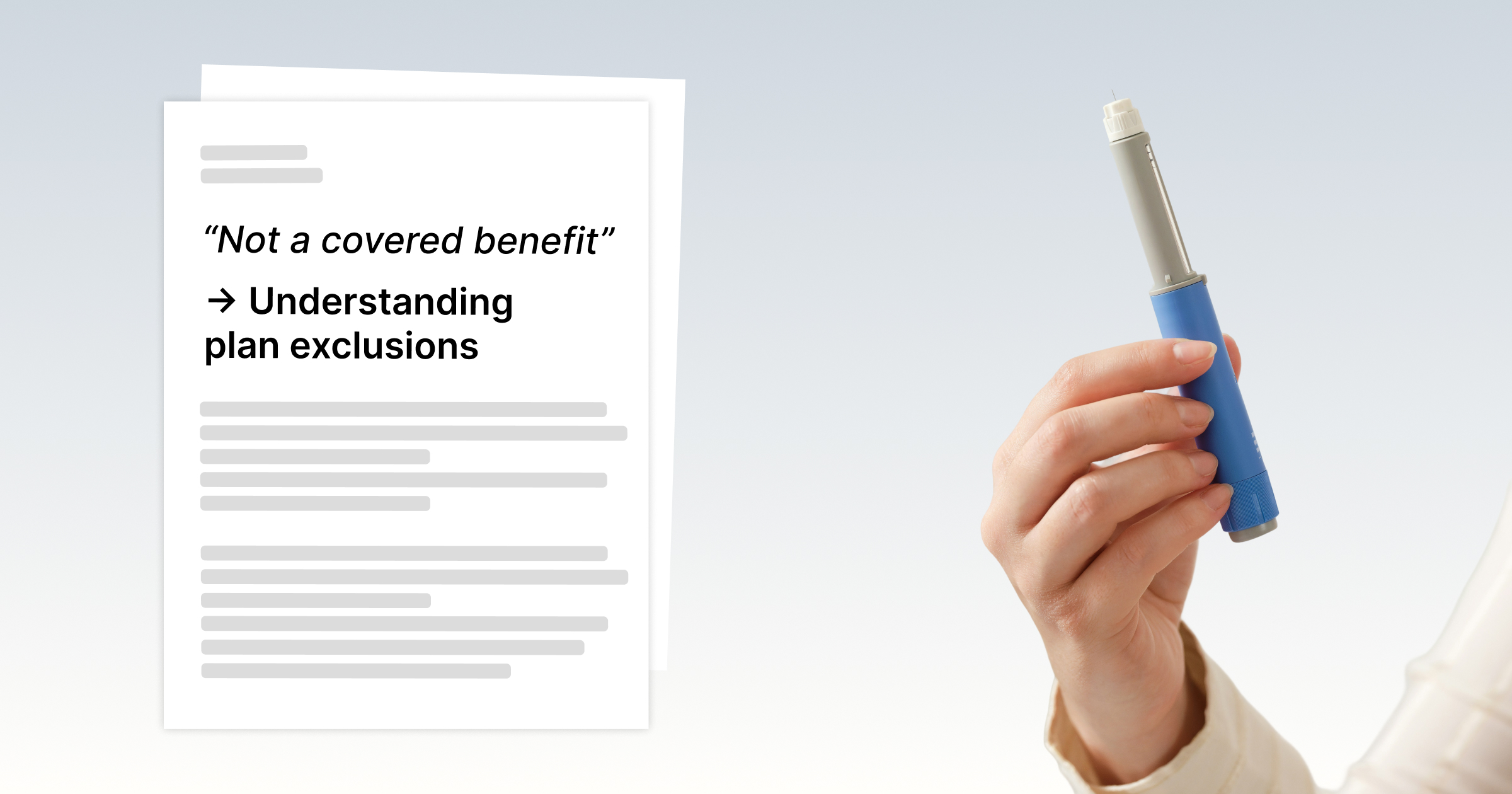How To Talk to Your Doctor About Denials: Top 7 Topics

In this article, we'll help you understand the role of your doctor when appealing a denied healthcare claim, and learn how best to work together–including 7 types of information to share.
If you find yourself confused and frustrated by insurance claims and denials, you are not alone. I’m a doctor and a patient with a chronic condition. I even worked at an insurance company for a while. With all that experience under my belt, I still find the rules and processes illogical and infuriating.
The most important thing to know is that you can appeal.
It’s your right!
In this article, we’re going to talk about the role of your doctor when appealing a denial, and how best to work together––including my top 7 topics to discuss.
Do I need to involve my doctor in my appeal?
You do not need your doctor’s involvement to appeal a denied healthcare claim. There’s no set playbook and it’s unlikely your doctor is an expert (they don’t teach these things in medical school). If and how you involve your doctor is a personal choice.
It’s important to know that appealing directly can be very effective. Many doctors don’t know this is an option, and don’t advise their patients to appeal as a result. .
So what can your doctor do?
Unsurprisingly, there isn’t one simple path for your doctor to take. If your doctor's office has a lot of support staff, they may call the insurer for you and try to iron out the problem. The insurer may have your doctor speak to one of their doctors. This is something called a peer-to-peer review (though these calls can be tough to coordinate with limited peer availability for certain specialties).
Instead, your doctor might suggest you try another treatment or enroll in a Patient Assistance Program.
Discuss the trade-offs of different treatment options in terms of benefits, risks, time and costs.
7 denial topics to discuss with your doctor
The insurer might need more information to determine if the drug is appropriate or cost-effective. Below is a list of 7 items to arm your doctor with:
#1 - Symptoms
Track the frequency and severity, and share your notes with your doctor. It’s helpful to have everything formally documented in your medical records.
#2 - Impact
Explain the impact on your daily life if care is denied. For example, an inability to drive, perform your job as expected, or care for a loved one.
#3 - History
Many insurers have specific rules around what has to be tried before they will pay for certain medications. Make sure your doctor documents all other medications and treatments you’ve previously tried, and why they did not work for you.
#4 - Denial Reason
If you get a letter from the insurer, it might include a term like “denied for medical necessity,” “treatment is deemed experimental,” or “excluded benefit.” Or, perhaps you’ve concluded a trial period and need to report results to renew your medication. Knowing the reason for the denial allows your doctor to focus their conversation on the right issue.
#5 - Current Guidelines
Ask your doctor to double-check current guidelines and to document against them as much as possible. These are often the basis of the insurance company rules.
#6 - You Rights
You might need to tell your doctor that under the Affordable Care Act, your right to appeal is protected. An insurer must give you a good-faith reason as to why they denied your care.
#7 - Urgent Review
If your medical needs are urgent because you face severe harm to your physical health, you may qualify for the Insurer to review your case more rapidly - usually within 72 hours. Make sure your doctor is aware of this, if applicable.
Arming your doctor with these 7 types of information will help them advocate more effectively on your behalf.
If you’re appealing directly, your doctor can still help.
Getting a letter from your doctor stating the medical necessity and urgency of your care could help your case. This “Letter of Medical Necessity” doesn’t have to be long, but should include the condition that’s being treated, the treatment required, the reason it’s needed, and what happens if it isn’t received. It should be signed, dated, and included in your appeal.
Certain insurers may ask for seemingly random information from your doctor, such as the Tax ID number of the practice. In this case, reach out to your doctor and explain why you need this information. Your doctor wants you to get the care you need, and should gladly empower you to file an appeal.
I don’t know how to appeal. Where do I begin?
Appealing a denied healthcare claim can feel overwhelming, but don’t worry, Claimable makes it painless. Our AI-powered platform analyzes clinical research, policy details, appeals data, and your personal medical story to generate and submit customized appeals in minutes. Our Introducing, Claimable article has everything you need to know to get started. The same details you might provide to your doctor can serve as the basis for an impactful direct appeal.
Ultimately, the best advocate for your health is you.
Be the first to know
Get the latest updates on new tools, inspiring patient stories, expert appeal tips, and more—delivered to your inbox.
You're on the list!



